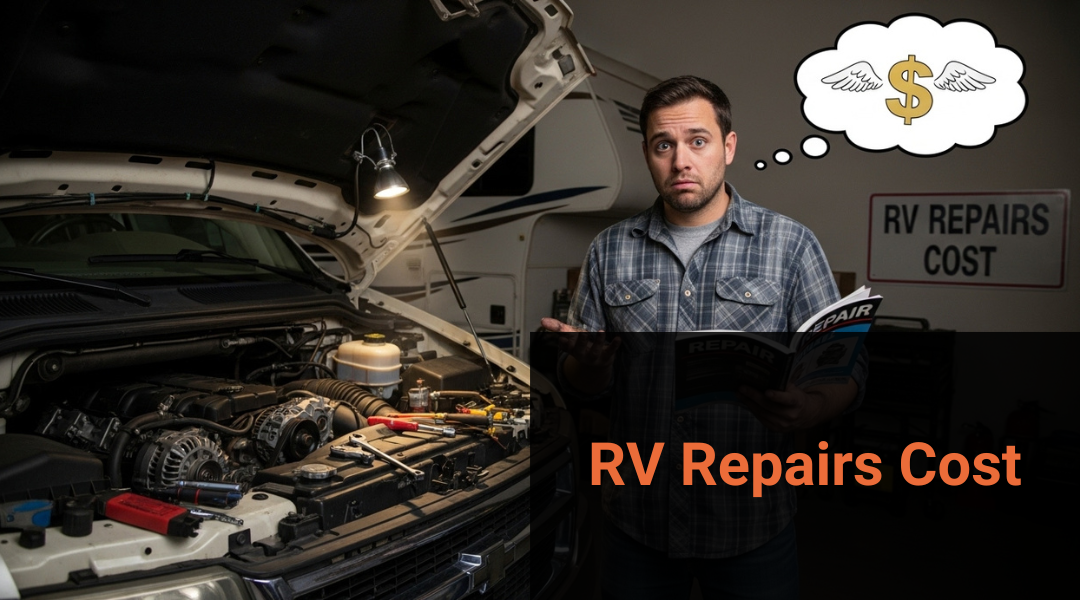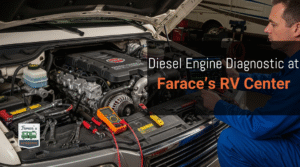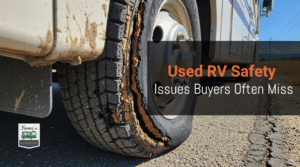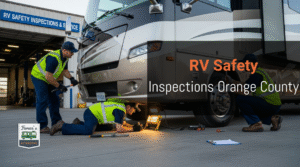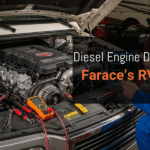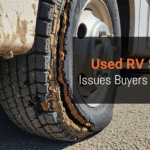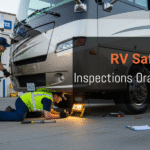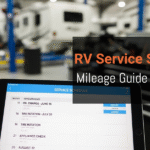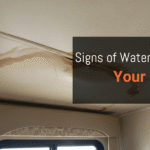RV repair costs in Huntington Beach can vary significantly based on the type of issue, vehicle age, and parts needed. Understanding typical pricing helps RV owners budget for maintenance and avoid unexpected expenses when their recreational vehicle needs attention.
Common RV repairs in Huntington Beach typically range from $150 for minor electrical fixes to $8,000 for major engine overhauls, with most routine maintenance falling between $300-$1,500. Factors like local labor rates, parts availability, and the complexity of RV systems all influence final repair costs in the Orange County area.
Farace Automotive & R.V. Center has served Huntington Beach RV owners since 1976, providing transparent pricing and quality repairs across all makes and models. Their veteran-family-owned shop combines decades of experience with modern diagnostic equipment to deliver reliable service at competitive rates for everything from roof leaks to complete engine rebuilds.
Why RV Repair Costs Vary in Huntington Beach
RV repair pricing in Huntington Beach fluctuates based on several key factors including labor rates, parts availability, and repair complexity. The local Orange County market influences pricing structures, while choosing the right repair shop can significantly impact both cost and quality outcomes.
Factors That Influence Pricing (Labor, Parts, Complexity)
Labor costs form the foundation of most RV repair estimates. Certified RV technicians in Huntington Beach typically charge between $95-150 per hour depending on their specialization and experience level.
Parts availability directly affects repair timelines and costs. Common components like water pumps or electrical fuses remain affordable and readily available. Specialized parts for luxury motorhomes or vintage models often require special ordering, increasing both wait times and expenses.
Repair complexity significantly impacts pricing:
- Simple repairs: Faucet replacements, light fixtures ($50-200)
- Moderate repairs: Slide-out adjustments, appliance repairs ($200-800)
- Complex repairs: Roof reconstruction, engine work ($1,500-8,000+)
Diagnostic time adds to labor costs, especially for electrical or engine issues. Modern RVs with sophisticated systems require specialized diagnostic equipment, which factors into the final repair bill.
Local Considerations: Huntington Beach & Orange County Market Rates
Orange County’s higher cost of living directly influences RV repair pricing compared to inland areas. Commercial real estate costs in Huntington Beach affect shop overhead expenses, which get passed to customers.
The area’s proximity to major RV manufacturers and suppliers helps keep some parts costs competitive. However, California’s strict environmental regulations require shops to use approved chemicals and disposal methods, adding operational expenses.
Local market factors include:
- Higher insurance and licensing costs
- Stricter emissions standards for mobile repairs
- Premium wages to attract skilled technicians
- Seasonal demand fluctuations from coastal tourism
Huntington Beach shops often service high-end motorhomes and travel trailers, creating a market dynamic that supports premium pricing for quality workmanship.
Importance of Choosing a Trusted Repair Shop
Selecting an established repair facility prevents costly mistakes and ensures proper diagnostics from the start. Inexperienced shops may misdiagnose problems, leading to unnecessary repairs and inflated costs.
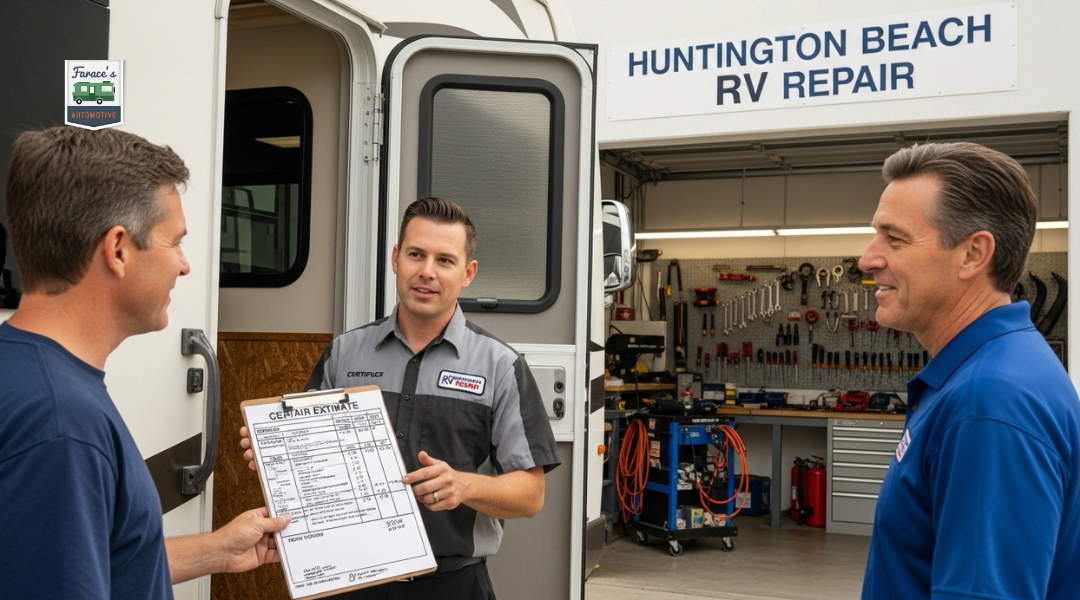
Reputable shops provide detailed written estimates and explain repair necessities versus recommendations. They stock quality parts and offer warranties on their work, protecting customers from repeat failures.
Benefits of trusted repair shops:
- Accurate initial diagnostics
- Transparent pricing structures
- Quality parts and materials
- Warranty coverage on repairs
- Established vendor relationships for better parts pricing
Professional shops maintain proper insurance and certifications, ensuring repairs meet manufacturer standards. This prevents voided warranties and ensures safety compliance for road travel.
Average Costs for Common RV Repairs
RV repair costs in Huntington Beach vary significantly based on the complexity of the issue and parts required. Basic repairs typically range from $200 to $800, while major mechanical or collision work can reach $15,000 or more.
Engine and Mechanical Repairs
Engine repairs represent some of the most expensive RV maintenance costs. Diesel engine diagnostics alone cost between $150 to $300 per hour.
Major Engine Components:
- Engine rebuilds: $8,000 – $15,000
- Transmission repairs: $3,500 – $7,000
- Cooling system overhauls: $1,200 – $2,500
Routine maintenance like oil changes cost $75 to $150 for Class A motorhomes. Fuel system repairs range from $400 to $1,800 depending on the issue.
Turbocharger replacement can reach $3,000 to $5,000. Air brake system repairs typically cost $500 to $1,500 per axle.
RV Roof Repairs and Resealing
Roof maintenance prevents costly water damage throughout the RV. Professional roof inspections cost $200 to $400.
Common Roof Repairs:
- Full roof resealing: $1,200 – $2,800
- Membrane replacement: $3,000 – $8,000
- Vent replacement: $300 – $700 each
Small leak repairs range from $250 to $600. Skylight replacement costs $400 to $1,200 per unit.
Emergency tarping services cost $200 to $500. Preventive annual resealing saves thousands compared to water damage repairs that can exceed $10,000.
Electrical System and Generator Repairs
RV electrical systems require specialized knowledge and components. Diagnostic fees range from $100 to $200.
Electrical System Costs:
- Inverter replacement: $800 – $2,000
- Converter repairs: $300 – $800
- Wiring harness replacement: $500 – $1,500
Generator repairs vary by size and brand. Carburetor cleaning costs $200 to $400. Complete generator replacement ranges from $3,000 to $8,000.
Solar panel installation adds $2,000 to $6,000. Battery bank replacement costs $800 to $3,000 depending on type and capacity.
Plumbing and Appliance Fixes
RV plumbing repairs address unique space constraints and specialized fittings. Service calls typically start at $150.
Plumbing Repairs:
- Water heater replacement: $800 – $1,800
- Fresh water pump: $200 – $500
- Black tank repairs: $400 – $1,200
Refrigerator repairs range from $300 to $800. Complete replacement costs $1,500 to $3,500.
Air conditioning service runs $250 to $600. Furnace repairs typically cost $300 to $900.
Slide-out mechanism repairs range from $800 to $2,500 per slide.
Brake, Tire, and Suspension Work
Safety systems require immediate attention when problems arise. Brake inspections cost $75 to $150.
Brake and Suspension Costs:
- Brake pad replacement: $400 – $800 per axle
- Air brake service: $300 – $700
- Shock absorber replacement: $200 – $500 each
RV tires cost $200 to $500 each for Class A motorhomes. Complete tire replacement ranges from $1,600 to $4,000.
Alignment services cost $150 to $300. Suspension system overhauls range from $1,500 to $4,000.
Collision Repair and Body Work
Collision damage varies dramatically in scope and cost. Minor repairs start at $500 for small dents or scratches.
Body Work Pricing:
- Fiberglass panel replacement: $800 – $2,500
- Paint work: $1,500 – $5,000
- Windshield replacement: $400 – $1,200
Major collision repairs reach $15,000 for extensive damage. Insurance often covers these costs minus deductibles.
Awning replacement costs $800 to $2,000. Window replacement ranges from $200 to $800 per unit.
Graphics and decal work adds $500 to $2,000 depending on coverage area.
Additional Services and Price Ranges
Beyond standard repairs, RV service centers offer specialized maintenance and upgrade options that extend vehicle lifespan and enhance comfort. These services range from cosmetic improvements to critical mechanical work, with pricing that varies based on scope and materials.
Interior Remodeling and Upgrades
Interior renovations transform outdated RV living spaces into modern, functional environments. Cabinet refacing typically costs $2,000 to $4,000, while complete kitchen overhauls range from $5,000 to $12,000.
Flooring replacement varies by material type. Luxury vinyl plank installation runs $3 to $7 per square foot. Laminate flooring costs $2 to $5 per square foot, including labor.
Upholstery work depends on piece complexity and fabric quality. Dinette cushions cost $300 to $600 per set. Full sofa reupholstering ranges from $800 to $1,500.
Electrical upgrades for modern amenities add $500 to $2,000. This includes USB charging stations, LED lighting conversions, and upgraded entertainment systems.
Trailer and Hitch Repairs
Hitch systems require regular maintenance to ensure safe towing operations. Weight distribution hitch adjustments cost $150 to $250. Complete hitch replacement ranges from $400 to $800, depending on capacity requirements.
Trailer brake repairs are essential safety components. Electric brake controller installation costs $200 to $350. Brake assembly replacement runs $120 to $200 per wheel.
Frame welding addresses structural damage from road stress. Minor crack repairs cost $200 to $400. Extensive frame work can reach $1,000 to $2,500.
Suspension component replacement maintains ride quality and handling. Leaf spring replacement costs $300 to $500 per side. Shock absorber installation runs $150 to $250 per unit.
Diesel Service & Maintenance
Diesel engines require specialized maintenance schedules and expertise. Oil changes cost $150 to $250, using high-grade diesel oil and filters. Fuel filter replacement adds $80 to $120 to service costs.
Diesel particulate filter cleaning prevents costly engine damage. Professional cleaning costs $300 to $500. Filter replacement ranges from $2,500 to $4,000.
Turbocharger service addresses performance issues in diesel systems. Cleaning and inspection cost $400 to $600. Turbocharger replacement ranges from $2,000 to $4,500.
Injection system service maintains fuel efficiency and power output. Professional cleaning costs $350 to $500. Individual injector replacement runs $400 to $600 each.
Routine RV Inspections and Safety Checks
Comprehensive safety inspections identify potential issues before they become costly repairs. Annual inspections cost $200 to $350 and cover all major systems.
Propane system checks ensure leak-free operation. Professional testing costs $75 to $125. Regulator replacement adds $100 to $150.
Electrical system diagnostics prevent fire hazards and component failure. Full electrical inspection costs $150 to $250. Circuit breaker panel upgrades range from $300 to $600.
Slide-out mechanism service maintains smooth operation. Lubrication and adjustment cost $150 to $200 per slide. Motor replacement ranges from $800 to $1,200.
How Farace Automotive & R.V. Center Keeps Repairs Affordable
Farace Automotive & R.V. Center maintains competitive pricing through their veteran-family ownership model, transparent pricing practices, efficient diagnostic technology, and focus on permanent solutions rather than temporary patches.
Veteran-Family-Owned Shop with Community Focus
The veteran-family ownership structure at Farace Automotive & R.V. Center creates natural cost advantages for customers. Family-owned businesses typically operate with lower overhead costs compared to corporate chains or franchises.
This ownership model eliminates franchise fees and corporate profit margins. The savings transfer directly to customers through more competitive labor rates and parts pricing.
Community Investment Benefits:
- Local hiring reduces training costs
- Established vendor relationships secure better parts pricing
- Word-of-mouth marketing reduces advertising expenses
The veteran ownership brings disciplined operational practices from military experience. This efficiency translates to faster diagnostic times and reduced labor hours for common repairs.
Family businesses prioritize long-term customer relationships over short-term profits. This approach encourages fair pricing to build repeat business rather than maximizing individual transaction values.
Transparent Estimates and Fair Labor Rates
Farace provides detailed written estimates before beginning any repair work. Customers receive itemized breakdowns showing parts costs, labor hours, and total project expenses.
The shop uses standardized labor time guides for common RV repairs. This prevents overcharging and ensures consistent pricing across similar repair jobs.
Estimate Components Include:
- Parts: Manufacturer part numbers and costs
- Labor: Hours required at posted hourly rates
- Miscellaneous: Shop supplies, disposal fees, taxes
Customers can compare estimates against other shops because all costs are clearly itemized. This transparency builds trust and demonstrates the shop’s commitment to fair pricing.
The shop provides cost alternatives when multiple repair approaches exist. Customers can choose between premium parts and budget options based on their specific needs and financial constraints.
Using “New World Technology – Old World Craftsmanship”
Modern diagnostic equipment reduces the time technicians spend identifying problems. Faster diagnosis means lower labor costs for customers while improving repair accuracy.
Digital scan tools quickly pinpoint electrical issues in RV systems. This technology eliminates the trial-and-error approach that increases labor hours and costs.
Technology Advantages:
- Computerized engine diagnostics
- Digital multimeters for electrical systems
- Pressure testing equipment for plumbing
- Refrigeration system analyzers
The “old world craftsmanship” approach emphasizes proper repair techniques over shortcuts. Technicians take time to fix problems correctly the first time, preventing costly repeat visits.
Experienced technicians recognize patterns in RV problems across different manufacturers. This knowledge allows them to work more efficiently and avoid unnecessary repairs.
Long-Term Value vs. Short-Term Fixes
Farace prioritizes permanent repairs over temporary solutions that fail quickly. This approach saves customers money by preventing the same problem from recurring within months.
Quality parts and proper installation techniques extend repair longevity. Customers avoid repeated labor costs for the same components when repairs are done correctly initially.
Long-Term Repair Benefits:
- Higher-grade replacement parts
- Proper torque specifications and sealants
- Complete system testing after repairs
- Follow-up inspections when needed
The shop educates customers about maintenance practices that prevent expensive repairs. Regular maintenance costs less than emergency repairs and extends RV component life significantly.
Technicians identify potential problems during routine service visits. Early detection allows customers to plan repairs during convenient times rather than dealing with expensive roadside emergencies.
Tips for RV Owners to Manage Repair Costs
Smart maintenance practices and informed decision-making can significantly reduce repair expenses for RV owners. Understanding insurance coverage and asking detailed questions before authorizing work helps prevent unexpected costs.
When Preventive Maintenance Saves Money
Regular preventive maintenance prevents costly breakdowns and extends component lifespan. Engine oil changes every 3,000-5,000 miles cost $50-100 but prevent engine damage that could reach $5,000-15,000.
Roof inspections twice yearly catch small leaks before they become structural problems. A $20 tube of sealant prevents water damage repairs that average $1,200-3,500.
Battery maintenance includes cleaning terminals monthly and checking water levels. This $10 maintenance task prevents premature battery replacement costs of $200-800.
Tire pressure checks every two weeks prevent blowouts and uneven wear. Properly maintained tires last 20-30% longer than neglected ones.
HVAC filter replacements every 30-60 days cost $15-25 but prevent system failures that require $800-2,500 in repairs.
Knowing When to Repair vs. Replace
Age and condition determine whether repairs make financial sense. Components over 10 years old with repair costs exceeding 50% of replacement value should typically be replaced.
Water heaters costing $600-1,200 new shouldn’t receive $500+ repairs when they’re 8+ years old. The new unit provides warranty protection and improved efficiency.
Refrigerators requiring $800+ cooling system repairs often benefit from replacement with residential units costing $800-1,500.
Air conditioning units needing compressor replacement ($600-900) should be evaluated against new unit costs of $1,200-2,000.
Awning fabric replacement ($300-600) makes sense, but complete awning mechanism replacement ($800-1,500) might warrant upgrading to electric models.
How Insurance May Cover Certain Repairs
RV insurance covers collision damage, comprehensive claims, and specific mechanical failures depending on policy terms. Collision coverage handles accident-related repairs regardless of fault.
Comprehensive coverage addresses weather damage, vandalism, and theft-related repairs. This includes hail damage to roofs, siding, and air conditioning units.
Extended warranty plans cover engine, transmission, and generator repairs after manufacturer warranties expire. These plans typically cost $1,500-3,500 annually.
Some policies include emergency roadside assistance covering towing costs up to $500-1,000 per incident.
Personal effects coverage protects belongings inside the RV during covered events.
Asking the Right Questions Before Approving Work
Request detailed written estimates breaking down parts and labor costs. Legitimate shops provide itemized quotes showing OEM vs. aftermarket parts pricing.
Ask about warranty coverage on repairs and parts. Quality shops offer 12-month warranties on labor and honor manufacturer part warranties.
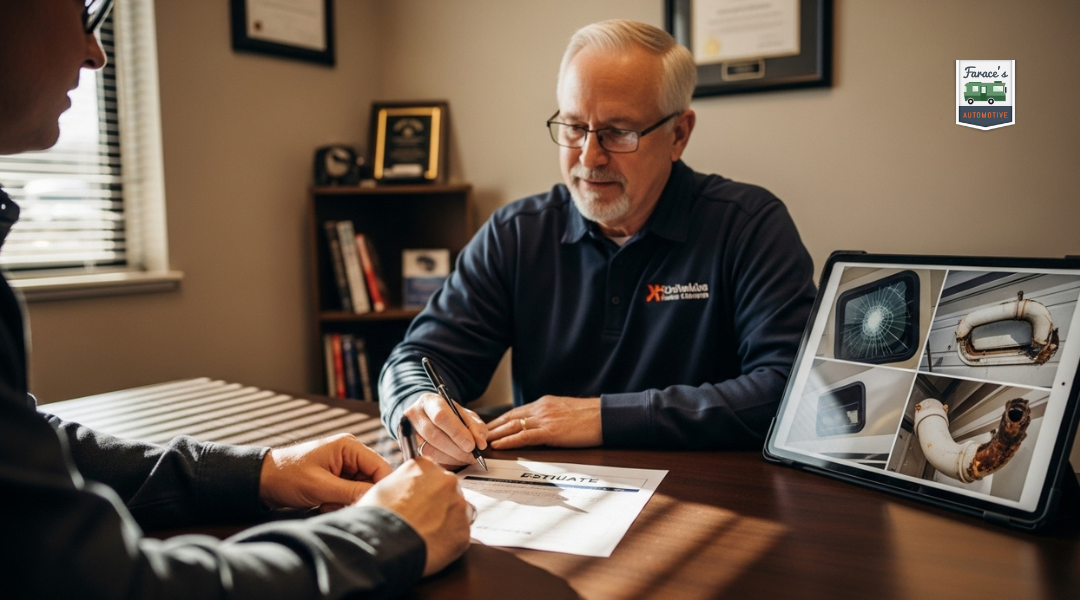
Inquire about diagnostic fees and whether they apply toward repair costs. Most shops charge $100-150 for diagnosis but credit this amount toward approved work.
Request pictures of damaged components before repairs begin. Visual documentation prevents disputes about work necessity.
Ask for return of replaced parts, especially expensive items like generators or inverters. This confirms the repair was actually needed and completed.
Verify technician certifications for specialized RV systems. RVIA-certified technicians have proper training for RV-specific repairs.
Why Local RV Owners Choose Farace Automotive & R.V. Center
Farace Automotive & R.V. Center has built a strong reputation through decades of service in Orange County and comprehensive capabilities that extend beyond basic repairs. Their established track record and customer satisfaction set them apart in Huntington Beach’s competitive RV service market.
Over 40 Years of Experience in Orange County
Farace Automotive & R.V. Center has served the Orange County community for more than four decades. This extensive experience spans multiple generations of RV technology and design changes.
The shop has worked on everything from vintage travel trailers to modern motorhomes with advanced electronic systems. Their technicians understand how different RV manufacturers approach construction and common failure points across various brands.
Key experience areas include:
- Classic RV restoration and maintenance
- Modern digital diagnostic systems
- Appliance repairs across multiple decades of technology
- Structural and frame work on older units
Long-term operation in the same location means they understand local driving conditions. Orange County’s coastal environment creates specific challenges like salt air corrosion and sand infiltration that affect RV components differently than inland areas.
Many customers have relied on Farace for multiple RV purchases over the years. This repeat business demonstrates consistent service quality and trustworthiness in a market where poor workmanship can be costly.
Full-Service RV and Automotive Capabilities
Farace operates as both an RV repair facility and automotive service center. This dual capability provides advantages that specialized RV-only shops cannot match.
The automotive side means they stock parts and have expertise for RV chassis repairs. Many RV owners struggle to find shops that can work on both the living area and the vehicle components underneath.
Services include:
- Engine and transmission work on motorhomes
- Brake system repairs and upgrades
- Suspension and steering components
- Air conditioning and heating systems
- Electrical troubleshooting and rewiring
Their parts inventory covers both recreational vehicle appliances and automotive components. This reduces wait times for common repairs that might take other shops days to complete.
The facility can handle large Class A motorhomes and smaller towable units. Their equipment accommodates various RV sizes without requiring customers to seek multiple service providers.
Strong Reputation and Customer Testimonials
Customer feedback consistently highlights Farace’s reliability and fair pricing practices. Reviews mention transparent communication about repair costs and realistic timeframes for completion.
Many testimonials specifically praise their diagnostic accuracy. Customers report that Farace correctly identifies problems on the first visit, avoiding the multiple trips often required at other facilities.
Common customer praise points:
- Honest assessment of repair necessity
- Competitive pricing without hidden fees
- Clean, organized facility
- Knowledgeable staff who explain issues clearly
The shop maintains relationships with local RV dealerships and manufacturers. These connections help with warranty work and accessing specialized parts when needed.
Customer retention rates remain high, with many RV owners scheduling regular maintenance appointments. This loyalty indicates consistent service quality over time rather than one-time positive experiences.

